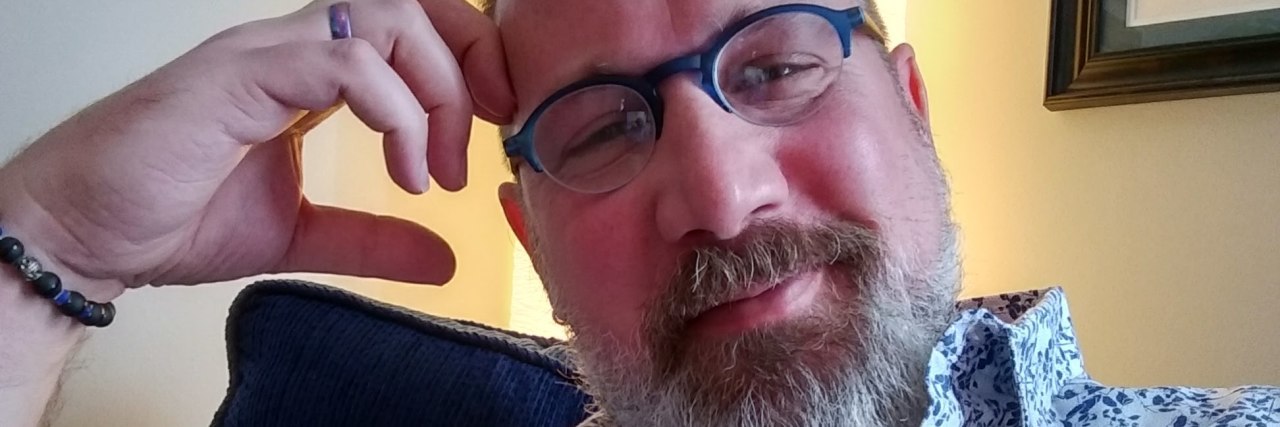How I Use ‘Compassion Practice Meditation’ to Live With Bipolar Disorder
Before I found support through my friends and family, and before counseling, medication and mindfulness practices helped stabilize my mood, bipolar disorder‘s message was that I didn’t deserve compassion. I was afraid of my thoughts while also being seduced by euphoric fantasies of escape, or weighed down by depression‘s longing for something missing. Addiction offered instant gratification against the pain of reality. In high-flying hypomania, I knew exactly what I wanted and how to get it. In depression, there was no point in wanting anything at all. Depression, whether caused by real-world experiences or from a sudden, inexplicable loss of serotonin and dopamine, brings despair and hopelessness. It slides into my bed and wraps its clammy arms around my belly, while restlessness scratches my skin like a heavy wool blanket. I’d kick off the blanket, but there is no blanket. It’s all in my head.
• What is Bipolar disorder?
Author and speaker Rob Bell gave one of the most compelling definitions of despair I’ve ever read: “Despair is a spiritual condition. It is the false, limiting belief that tomorrow will be the same as today, though logical mind tells us that’s not true. Tomorrow — in fact the next moment — will be different, if we’re aware.”
When I’m grieving what my heart most wants and can’t hold, and when I fear the unknown, I can offer myself compassion. If I turn toward grief and fear instead of running away, I can accept them as a part of the human experience, and offer myself grace, emotional balance and connection with present moment reality. When I set aside the story that bipolar depression tells me and connect to what’s really happening, I can find breathing space in the always-present, always-changing external world around me. The pull from reality that accompanies a bipolar cycle begins to dissolve with Compassion Practice.
In Compassion Practice Meditation, I repeat three sentences three times, starting with myself. “May I be free from this suffering. May I be kind and gentle with myself. May I experience peace and ease.” Then, I think of someone close to me and offer the sentences three times, then someone neutral in my life. I continue to breathe in and out of my nose at a relaxed pace and offer the sentences three times to someone who angers or frustrates me (I start small here, and save the big-ticket items for later), and then offer these sentences to the world.
When I’m depressed, resistance always shows up during this practice. I feel undeserving of compassion, or I cannot access it. In this case, I offer compassion to the resistance, saying “May I be freed from the suffering of resistance, may I be kind and gentle towards resistance, and may I experience peace and ease with this resistance.” Saying “may I” instead of “I am” is the difference between making an offer and making a declaration. The offer of “may I” feels like gentle permission. I can take the offer now, later or some other day. Affirmation meditations don’t work for me when I’m depressed. Repeating, “I am free from suffering, I am kind and gentle with myself, I am living with peace and ease” feels disingenuous, and I ain’t buying it.
From “Recovery Dharma: How to Use Buddhist Practices and Principles to Heal the Suffering of Addiction,” pages 26 and 27:
“The second heart practice is compassion, which is a willingness to come close to pain: to recognize it, honor it, acknowledge it, and respond to it wisely. This isn’t easy, because just as we want to run from or suppress our own pain, we also want to avoid being with the pain of others. Compassion means sitting with our own pain and that of others. It stops the cruelty of indifference. Compassion for ourselves is crucial. Self Compassion is the key to healing the shame and guilt that we often feel as we begin to recognize the harms we caused to others.”
When I allow the pain to come closer, and trust that the world offers me more than sadness, shame and longing for escape, the present moment opens like the bottom of an hourglass. I can sit with depression without sitting in it, soothe hypomania without feeding it, and discover moments of gratitude that appear like rare birds landing on a branch. Sure, they fly away, but they’re beautiful to watch and name while they’re here.
The small, meaningful differences that lift me from bipolar despair come from the gratitude I have for a cup of coffee, morning meditation practice, offering compassion to those who have been harmed by my addictions and bipolar cycles, and texting daily gratitude lists to my friends who check-in “just because.” There’s gratitude for occasional hummingbirds, red-headed woodpeckers in the trees beyond my balcony, and the surprise of a handwritten card in my mailbox from a friend on the West Coast. For a few minutes, I am whole, blessed and grateful.
I am loved even though I don’t always feel understood. I belong even though I don’t always fit in. I’m not broken, I’m healing. Bipolar disorder doesn’t define me as anything other than human. I am reminded that everything, including a bipolar cycle, including this moment, including me, is temporary. If you find yourself weighed down beneath depression‘s itchy wool blanket, please try to practice compassion for yourself and others. Find some beauty in the ordinary, and share gratitude for those with whom you already share your life. Don’t believe depression‘s lie that you’re broken and deserve to be alone.
When you’re longing for what’s missing, remind yourself of what’s here. Look at your hand. Feel the aliveness in your fingertips. See beyond what’s dark and look for color. Be astonished, and tell about it.
Image via contributor

